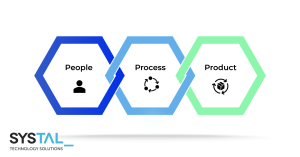In a digital-first world, your access credentials are the keys to your business. Cyber criminals know this and increasingly target login credentials to gain unauthorised access, breach data, deploy ransomware and exploit weaknesses that result in regulatory consequences.
Recent cyberattacks on UK retailers, including incidents linked to the Scattered Spider threat actor group, have demonstrated how attackers are bypassing traditional Multi-Factor Authentication (MFA). These events have elevated the urgency for organisations to adopt phishing-resistant MFA.
Why Credential Theft and Phishing Remain Top Initial Attack Vectors
- 16% of initial breaches in IBM’s 2024 Cost of Data Breach Report started with compromised credentials, costing an average of $4.81 million USD per breach.
- The Verizon 2025 Data Breach Investigations Report found 42% of ransomware breaches involved credential theft and phishing – a year-on-year increase.
What is MFA?
MFA is one of the most effective defences against credential-based attacks. It requires users to verify identity using two or more independent credentials:
- Something You Know: Password or PIN.
- Something You Have: Smartcard, token or device.
- Something You Are: Biometrics such as a fingerprint or facial scan.
2 Factor Authentication (2FA) is a type of MFA limited to two authentication methods, whereas MFA can use two or more methods.
What are the Risks of MFA Complacency?
Whilst MFA is more secure than relying on passwords alone, not all MFA is created equal. Complacency can create a false sense of security that attackers exploit.
Traditional MFA methods, such as SMS codes or one-time passwords, are increasingly vulnerable to phishing and social engineering attacks. Relying on legacy MFA without regular evaluation can leave systems exposed, particularly as threat actors adopt more advanced tactics.
Additionally, regulatory frameworks and cyber insurance requirements increasingly demand phishing-resistant MFA. Failing to evolve increases breach likelihood and may create compliance and financial risks.
The answer? The future of secure access lies in Phishing-Resistant MFA.
What is Phishing-Resistant MFA?
Phishing-resistant MFA uses authentication methods specifically designed to withstand phishing. Unlike traditional MFA, these solutions do not rely on codes that can be intercepted or stolen. Instead, they use cryptographic credentials bound to the user’s device and the legitimate domain, often using the FIDO2 standard.
Examples include:
- Physical Security Keys: Devices using FIDO2 protocols to confirm identity.
- Biometric Authentication: Fingerprint or facial recognition directly on the device.
- Passkeys: Replacing passwords with cryptographic credentials tied to the legitimate site or app
Key benefits include:
- Advanced Threat Protection: Stops phishing, man-in-the-middle, and credential stuffing attacks.
- Compliance Alignment: Supports GDPR, ISO 27001, NIST and cyber insurance requirements.
- Improved UX: Passwordless workflows reduce friction and lower helpdesk calls.
- Risk Mitigation: Reduces breach exposure and related financial, reputational, and legal risks.
- Adoption Readiness: Supported by IAM platforms like Microsoft Entra, Okta, and Duo.
Traditional MFA methods such as SMS codes or one-time passwords are increasingly vulnerable to phishing and other social engineering attacks.
How Systal Helps Enterprises Secure Identity and Access
At Systal, we help enterprises transition to phishing-resistant MFA with:
- MFA Audits: Assessing existing MFA implementations.
- Phishing-Resistant MFA Deployment: Designing and deploying across multi-cloud and hybrid environments.
- Compliance Alignment: Aligning with standards including NIST, GDPR, and ISO 27001.
- User Training: Educating teams on secure access practices.
- Risk Reduction: Reducing credential-related breach risk with measurable outcomes.
Ready to Upgrade Your Enterprise Access Security?
Systal Technology Solutions is a trusted global cybersecurity partner, operating in over 93 countries to help organisations modernise authentication, identity governance, and secure access strategies.
Contact our cybersecurity team today to learn how phishing-resistant MFA can reduce your breach risk, simplify secure access, and keep your organisation compliant.
CONTACT US











